As a screenwriter, a trope can be both your best friend and your enemy. How is a writer meant to stand out when the same plot line has been repeated a million times before? At the same time, a trope is often a trope because it taps into something that audiences want to see. There is perhaps little better example of this than the Special Girl trope.
Film constantly influences society; how we think about ourselves and how we view others. A trope, therefore, can portray a damaging message. If the most popular films are presenting certain characters in one light, it can reinforce negative stereotypes. The Special Girl trope demonstrates this well.
Overall, it’s a tradition that has been present in recent years but that has been around for centuries. So what does it look like? How does it typically manifest in film and TV? In this article, we explore the Special Girl trope and what to do in order to avoid falling into its traps in your own screenwriting.
Table of Contents
- What is the “Special Girl” Trope?
- Why is The Special Girl Trope So Popular?
- The Original Special Girl
- Introducing the Special Girl
- The Special Girl and Femininity
- The Special Guy
- The Special Girl and Avoiding Toxic Relationships
- Idealism and The Special Girl
- In Conclusion – How to Avoid the Special Girl Trope
What is the “Special Girl” Trope?
We must first understand what it is and where it came from. So, who exactly is The Special Girl?
The Special Girl is a female protagonist, who on the surface seems completely ordinary, but who suddenly becomes extraordinary in the eyes of the Special Boy – who is usually the boy everybody else wants. This often leads others around her to feel jealous or simply baffled as they can not understand what is so brilliant about her. This, in turn, isolates her.
Well-known examples of Special Girl Characters include:
- Bella Swan in Twilight
- Anastasia Steele in Fifty Shades of Grey
- Francis “Baby” Houseman in Dirty Dancing
What these characters have in common is that they are not extraordinary, but they are treated that way when the Special Boy falls in love with them.
The audience is expected to believe the Special Girl is unique without any, or scant, evidence. They have very little of their own personality and their identity often revolves around their relationship. Instead of displaying any real special qualities, it is the male character’s interest in them that tells us we should route for her.
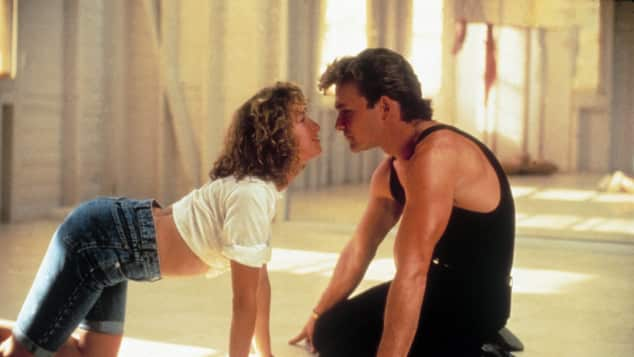
Why is The Special Girl Trope So Popular?
While the title of this article is how to avoid the Special Girl trope, the formula can be picked apart in order to excavate the positive elements. The trope gained popularity, especially amongst teenagers and young adults, because it allowed people to imagine themselves in the position of the Special Girl.
With a sense of “normality” about them, the Special Girl could be any member of the audience. It allows audiences to see themselves as special, and to daydream that Edward Cullen or Christian Grey might one day fall in love with them.
The trope’s popularity is perhaps rooted in audiences’ desire for romantic arcs. The problem with the trope, however, comes in that it largely implies that a female character can only become special once a male character has fallen in love with her. The Special Girl cannot simply be special on her own. She is, instead, defined by her relationship with her male counterpart.
This is why, if you want to write a screenplay that represents a more complicated, original and realistic female character, it’s best to avoid the Special Girl trope’s trappings. Or it is, at least, important to pay more attention to who your Special Girl is outside of her relationship. This will, in turn, make her a more fleshed-out and original character overall.
The Original Special Girl
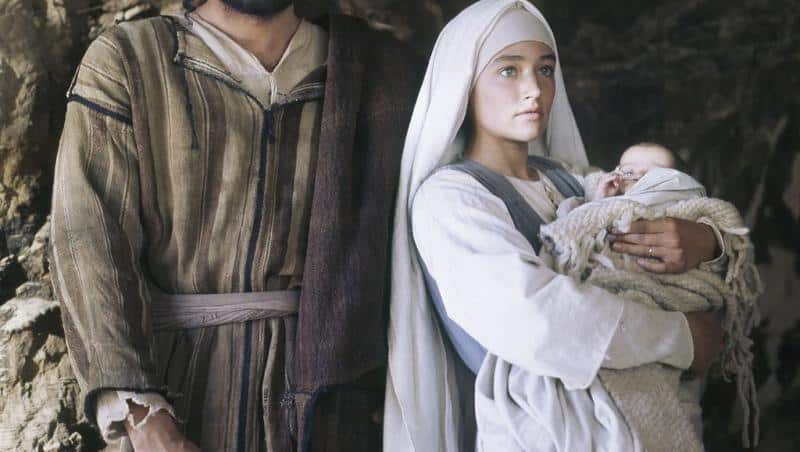
The Special Girl trope has been around for a long time. It all begins with The Virgin Mary. Yes, you read that right. Mary was chosen because she was a virgin. This made her more worthy than other women because that meant she was pure and “without original sin”.
Purity and The Special Girl Trope
This tradition has carried on through film and television. Innocence and purity are often an important part of the Special Girl trope. It makes the girl stand out among all the others and, therefore, the Special Boy notices her. The Special Girl then often loses her virginity to the Special Boy.
- Bella and Edward from Twilight are probably the ultimate examples of this.
- Edward insists he and Bella wait until marriage in an attempt to keep her safe from his super sharp teeth, but also arguably to maintain her purity for as long as possible. She falls pregnant immediately after their honeymoon.
The Virgin Mary cliche perpetuates the idea that a woman is unworthy if she is not innocent, and that she cannot be special if she has been with anybody but the Special Boy. Again, it’s this framing of the female character in regards to the male character that undermines convincing characterisation. Moreover, it’s another aspect of how the Special Girl trope is based on antiquated ideas of gender, even if this doesn’t always seem explicit at first.
Introducing the Special Girl
An important part of recognizing a trope is identifying how it typically manifests within the storytelling. Special Girls, for example, are typically introduced as plain or ordinary compared to other women.
- The other women are usually more charismatic, but the Special Guy has no interest in them.
- He sees something in the Special Girl that others don’t. He then brings out her “specialness”.
The problem is that we do not know what makes her special in the first place. Now the only thing that makes her an important character is the Special Guy. She has little identity of her own and is seen only as a love interest.
West Side Story
One example of this is Maria in West Side Story, in which the main characters are arguably far from the most interesting part of the story.
Maria is presented as an innocent, Virgin Mary character. Her first scene is an argument with her sister-in-law over the colour white. Maria wants to wear a red dress, but she is made to wear white (the colour of purity).
We have only just been introduced to Maria when Tony falls in love with her. The scene is romantic, but the audience is left wondering what Tony has seen in her that we haven’t. He even sings a song about her, but it seems he doesn’t have much to say other than that he likes her name. Not the most persuasive grounds for true love.
She spends the rest of the film protesting about her brother’s insistence she stay away from a man she just met. And she rarely displays much personality beyond that.
On the other hand, the supporting couple, Anita and Bernardo, seem much more interesting characters.
- Anita is fiery, clever, opinionated and shows interest in things such as fashion and dancing.
- In other words, she has developed a personality outside of her relationship with Bernardo.
- The couple is clearly in love, but neither one of them is special because of the other. They are individuals in their own right.
How to Introduce Your Female Protagonist
So how would you solve a potential problem like this, even if it’s unintentional? Well, one way to show that your female character is an individual in her own right would be to introduce what makes her special and interesting before she meets the love interest.
- What are her interests, her talents and her aspirations?
- What is her inner conflict?
- Is she funny? Or smart? Or edgy?
- What is her family life like?
- What are her strengths and flaws?
- In simple terms: Who is she and why should we root for her?
Establishing a solid idea of who this character is before her introduction to her romantic counterpart is a way to guard against the Special Girl trope. It allows the character to be defined by something other than her romantic arc. Instead, it makes such an arc a mere part of her character development rather than its sole definition.
The Special Girl and Femininity
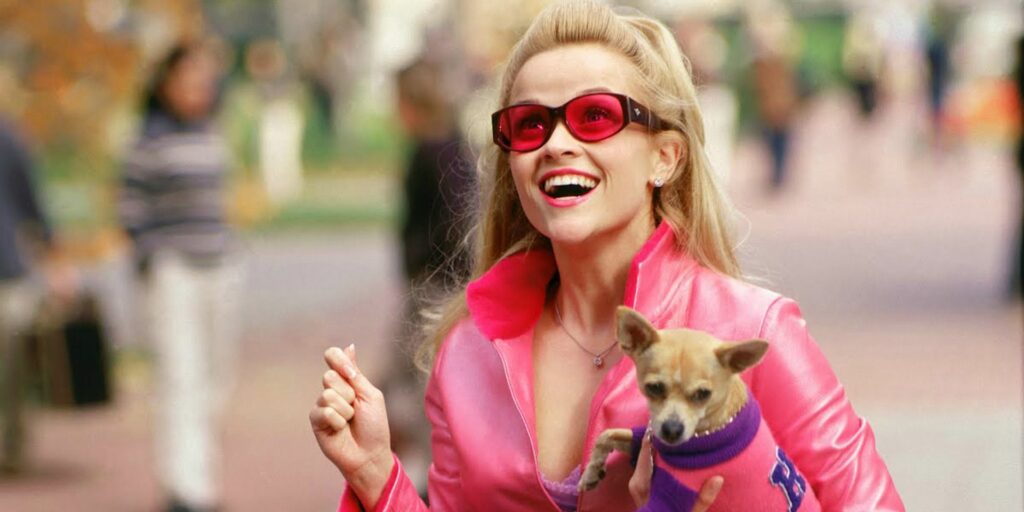
The Special Girl trope has a complex relationship with femininity. Most female characters written under this trope are not necessarily overly masculine. But they tend to reject stereotypically feminine traits.
- In Fifty Shades of Grey, for example, Ana is compared to the women Christian works with. They are tall, blonde, well-dressed and well-manicured.
- Meanwhile, in Twilight, Edward likes Bella because she doesn’t care about the latest gossip or fashion trends. But Edward’s sister Alice is seen as superficial for caring about those things.
One of the reasons the Special Guy likes the Special Girl is because she isn’t like other girls. This usually means she doesn’t wear makeup or care about her clothes, or gossip with her friends. In short: because other girls embrace traditional and stereotypical ideas of femininity they lack substance, and the Special Girl doesn’t.
Elle Woods: A Real Special Girl
Take Elle Woods from Legally Blonde as an example of an anti-Special Girl in this respect. A Special Girl gone right if you will. Elle is possibly the most stereotypically feminine protagonist ever written.
She knows everything there is to know about fashion and boys, she loves to have fun with her female friends, and she embraces femininity in her appearance and dress sense. However, on top of that, Elle is also a brilliant and intelligent lawyer who surpasses the expectations of everyone around her.
It is all these qualities that make her so iconic. She isn’t special in spite of them, she is special because of them. And it is easy for the audience to see why Emmett falls in love with her in the end. She’s special in a true sense; a character with complexities that belies our initial judgment and a character who achieves her goal without compromising who she is.
The Special Guy
An important part of the Special Girl trope is that they are treated by the other characters like they are not good enough for the Special Guy.
The female characters are typically presented as being ordinary whereas the Special Guy is something extraordinary. So they are lucky just to be in their presence.
- The Special Guy is popular, handsome and chased after by all the other girls.
- However, he ignores them in favour of the Special Girl, who, as we have established, appears plain and ordinary in comparison to the others.
- The Special Girl should feel lucky she was chosen by him and she can barely believe it when it first happens.
However, if the female protagonist was so truly special, she would not need to feel this way about the male character. This is not to say it should be the other way around either. Instead, they should be on equal footing. Shouldn’t both parties feel privileged to be in each other’s lives?
Lara Jean
Take To All The Boys I’ve Loved Before, for example. Neither Lara Jean nor Peter believe themselves to be punching above their weight. But they both appreciate each other and feel lucky to be in one another’s lives. They both see the flaws in one another yet love each other because of them.
- Lara Jean has a big personality outside of the relationship, and she has a lot of self-respect.
- But Peter is a popular guy that girls constantly chase after.
- The other characters are confused about their romance. However, it never feels as though he is superior to her and the other characters eventually realize the qualities that make Lara Jean special as well.
Her character is still relatable. Most of us have had a teenage crush and most of us have wondered what would happen if they knew about this crush. To All The Boys I’ve Loved Before shows characters can still daydream about finding love with that special guy without having their own self-worth depending on it.
So a key way to avoid the Special Girl trope is to make sure one character does not come across as superior to the other. Both should be equally matched characters, supporting one another’s arcs rather than just existing to serve another’s character development.
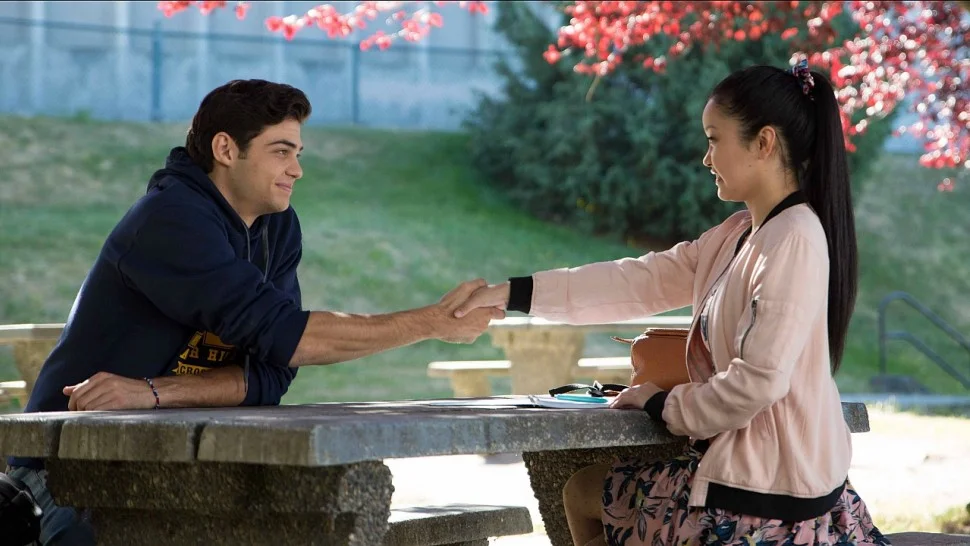
The Special Girl and Avoiding Toxic Relationships
In some films, the Special Girl trope is used to unwittingly promote unhealthy relationships. The Special Girl is often, for instance, the victim of love bombing, emotional manipulation, being told she isn’t like other girls and isolation from friends and family.
There are examples of this in the Twilight series and in Fifty Shades of Grey.
- In Twilight: New Moon, for instance, Edward leaves Bella. This makes her realize that her life revolves around him. She spends the majority of the film attempting to rebuild her friendships. But her infatuation with Edward gets in the way. In the end, Edward returns and she falls back into the same pattern.
- In Fifty Shades of Grey, meanwhile, Christian Grey tries to make Ana sign a contract effectively making her his slave. She refuses. However, he tries everything to coerce her into signing it. While she never does, she still puts up with the manipulative and controlling side of his personality because he makes her feel “special”.
If you want to avoid the Special Girl trope but write a conflict-filled relationship, pay attention to not only how your female protagonist is treated by the Special Guy but how they react to such treatment. Presenting a character without agency or perspective in this context runs the risk of portraying a toxic relationship as normal or idealized. Instead, the drama should seek to analyze and address such a relationship.
Again, weak characterisation on the female character’s part will breed the sense that she is in thrall to the male character and their actions. However, a rounded character who we can understand the actions of on a deeper level will provide more effective insight into the relationship and its dynamic.
Idealism and The Special Girl
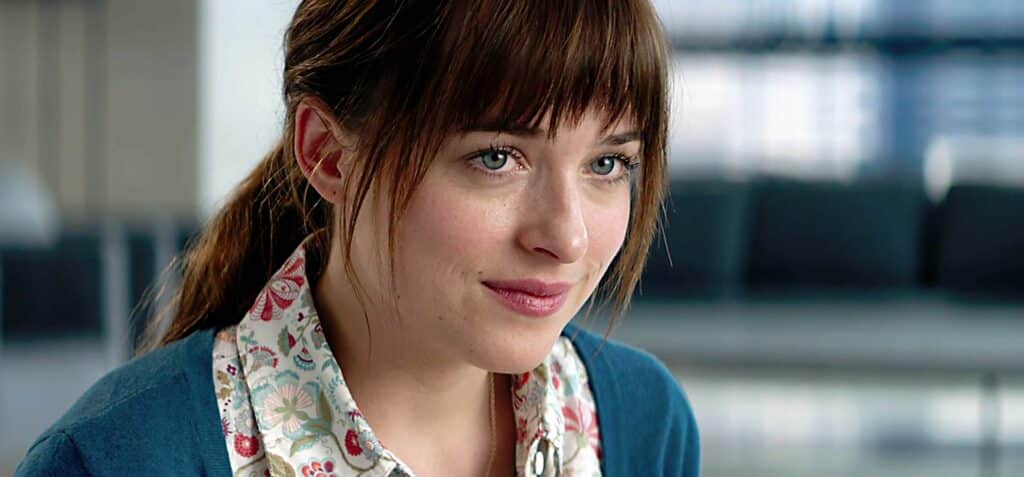
The Special Girl trope can also be damaging to an already intriguing and complex character. Your female protagonist may have tonnes of personality. However, the Special Girl is there to represent what the “perfect” woman is meant to be. This can cause us to miss the point of the character.
This is because she is reduced to being an idealized version of a woman rather than a normal, fully-rounded character. Again, she serves a function to another character or idea, rather than being a character who can define her own journey with her complex inner conflict, wants, needs and motivations.
So one way to avoid the Special Girl trope in your writing is to allow your female protagonist to make mistakes. Allow them to have human flaws because that is what makes a character interesting. It’s what allows us to connect and relate to them.
Giving your character a purpose beyond being a love interest will ultimately make them far more likeable and engaging. And writing them as a complicated, flawed character rather than an ideal can equally achieve what The Special Girl trope aims to do. It creates empathy and engagement, willing us to support the character and, in turn, perhaps hope they fall in love. It makes the romance more believable and consequently absorbing, rather than it feeling stereotypical or predictable.
In Conclusion – How to Avoid the Special Girl Trope
Overall, the Special Girl is arguably popular because the trope represents audiences’ desire to be loved by someone special or to be identified as special themselves.
However, the trope can be a boring and sometimes outright negative depiction of women and relationships. Moreover, in screenwriting terms, it’s often a shorthand for weak characterisation.
How to Avoid the Special Girl Trope
So there are a number of important elements to consider in order to avoid the Special Girl trope.
- Introduce your female protagonist’s distinctive traits before she meets the love interest. She does not need to be plain and ordinary to be relatable.
- The Special Girl and love interest are both lucky to have each other. The Special Girl does not have to be privileged to be chosen by the Special Guy.
- The female character’s “specialness” does not have to be a rejection of ideas of femininity.
- Allow your character to have flaws. They should not be an idealized version of what a woman or person is supposed to be.
- Avoid presenting controlling relationships as romance and without a sense of the female character’s perspective or inner conflict.
Ultimately, there are elements one can take from the Special Girl trope in order to write an empathetic character swept up in romance. However, you can write a screenplay that has the same effect – expressing the audience’s desire for love – without sacrificing your female protagonist’s individuality. And this, in turn, will make for a much more original and impactful screenplay.
–What did you think of this article? Share It, Like It, give it a rating, and let us know your thoughts in the comments box further down…
– Struggling with a script or book? Story analysis is what we do, all day, every day… check out our range of script coverage services for writers & filmmakers.
This article was written by Lauren Dunlop and edited by IS staff.
Get *ALL* our FREE Resources
Tackle the trickiest areas of screenwriting with our exclusive eBooks. Get all our FREE resources when you join 60,000 filmmakers on our mailing list!

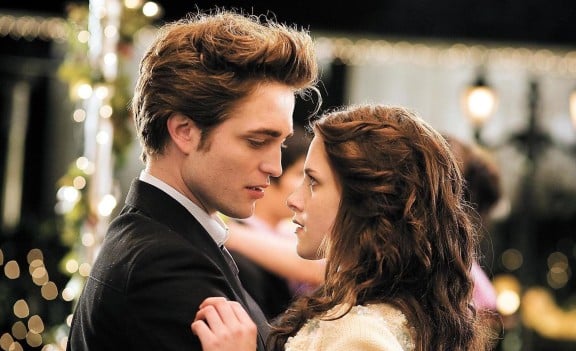
It nice to understand the detail plus it much helpful and I won’t get trap in such plot.
Thanks, much appreciated
So glad you enjoyed this article Precious!
The Virgin Mary was chosen because her mother was a virgin when she gave birth to Mary. Mary is without original sin. The painting “Birth of the Virgin” by Gregorio Di Cecco that hangs in the Vatican painting gallery gives depicts that scene.